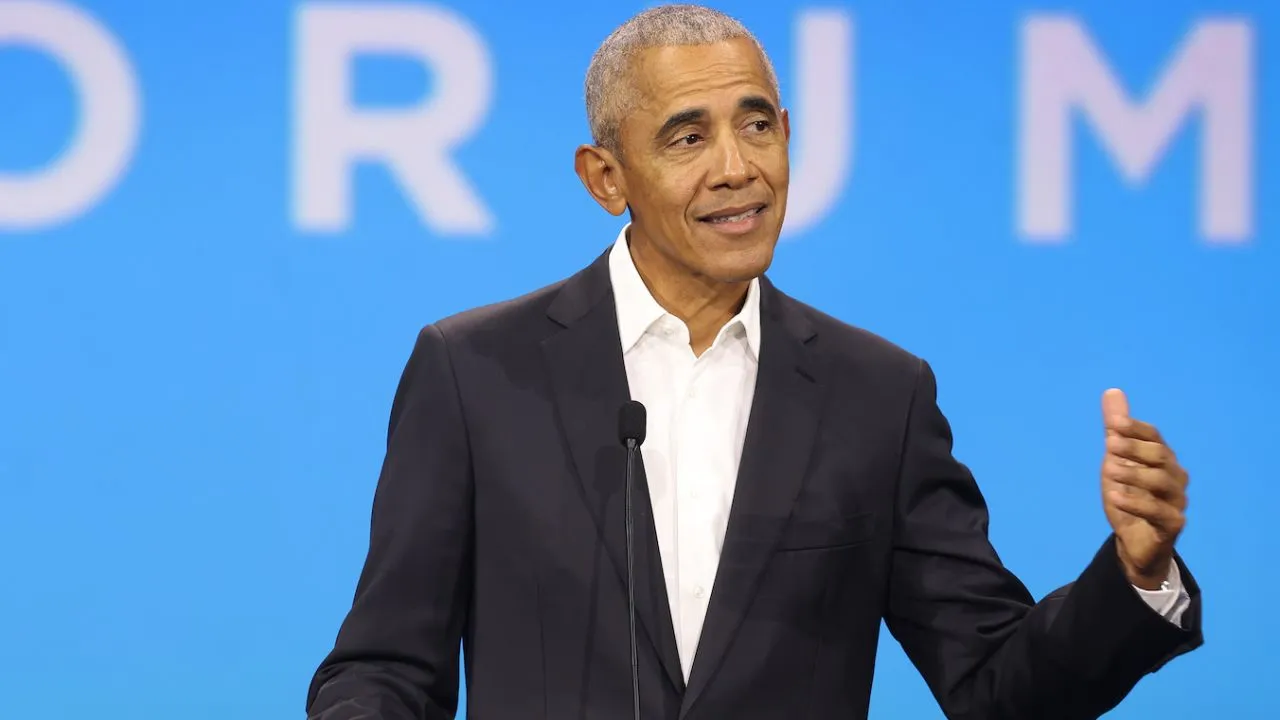In a surprising turn of events, it has been revealed that the Obama administration played a significant role in setting up the Hamas office in Qatar. This move was seen as a part of appeasement and soft diplomacy towards a group that has long been considered a terrorist organization by the United States and its allies.
Established in 2012, the office served as a channel for indirect communication between the US and Hamas, with the Qatari government claiming that it helped mediate conflicts between Israel and the Palestinian territories. However, experts argue that the US and Israel tolerated the presence of Hamas in Doha under the assumption that Qatar would act as a moderating influence.
Nonetheless, with the recent Oct. 7 attack on Israel by Hamas, attitudes towards the office and Qatar’s role have shifted dramatically. Calls are now being made to end the US tolerance of a state sponsor or safe harbor for Hamas, and to reassess the relationship with Qatar.
On its part, Qatar denies allegations of funding and sponsoring Hamas, stating that its policy of engaging with all sides can lead to lasting peace. This revelation has sparked a necessary conversation about the implications of diplomatic choices and the potential dangers they may pose.
Background
The establishment of the Hamas office in Qatar
In 2012, the Hamas office was established in Qatar, allowing the Palestinian militant group to have a presence in the country. This move was significant as it signaled Qatar’s willingness to support Hamas, despite it being classified as a terrorist organization by many countries. Qatar’s decision to allow the office to operate within its borders was a controversial one, considering Hamas’ history of violence and its involvement in the Israeli-Palestinian conflict.
Purpose of the office
The primary purpose of the Hamas office in Qatar was to provide the group with a platform for diplomatic engagement and communication. It served as a channel for indirect communication between Hamas and other key stakeholders, including the United States.
Qatar’s claims of mediation
The Qatari government asserted that the presence of the Hamas office facilitated dialogue and mediation between Israel and Palestine. Qatar positioned itself as a neutral and impartial party, aiming to bridge the gap between the two conflicting sides. By hosting the Hamas office, Qatar aimed to demonstrate its commitment to facilitating peace negotiations and resolving the long-standing Israeli-Palestinian conflict.
US and Israel’s tolerance towards Hamas in Doha
Both the United States and Israel exhibited a level of tolerance towards Hamas operating within Qatar. This tolerance largely stemmed from the belief that Qatar would act as a moderating influence on the group. The US and Israel hoped that Qatar’s engagement with Hamas would encourage the group to move towards a more peaceful and diplomatic approach. However, this approach has faced criticism from those who argue that it legitimizes a terrorist organization and undermines efforts to combat extremism.
Role of the Obama Administration
Involvement in setting up the Hamas office
The Obama administration played a significant role in the establishment of the Hamas office in Qatar. As part of its broader strategy of appeasement and soft diplomacy, the administration supported Qatar’s decision to host the office. This move was aimed at creating a channel for indirect communication with Hamas, in hopes of fostering dialogue and potentially influencing the group’s behavior.
Motives behind appeasement and soft diplomacy
The motives behind the Obama administration’s approach of appeasement and soft diplomacy towards Hamas were multifaceted. The administration believed that engaging with Hamas indirectly through the office could lead to a more productive dialogue, potentially resulting in a peaceful resolution to the Israeli-Palestinian conflict. Additionally, by involving Qatar as an intermediary, the US hoped to maintain its influence in the region and prevent other powers from filling the diplomatic vacuum.
Indirect communication between the US and Hamas through the office
The Hamas office in Qatar served as a conduit for indirect communication between the US and Hamas. This communication allowed the two parties to exchange messages, convey concerns, and potentially explore opportunities for dialogue. The intention was to establish a backchannel that bypassed the formal channels and barriers imposed by Hamas’ classification as a terrorist organization.
Critics’ views on the Obama administration’s stance
Critics of the Obama administration’s stance argued that it amounted to legitimizing a designated terrorist organization. They believed that engaging with Hamas, even indirectly, sent the wrong message and undermined the fight against extremism. Additionally, critics argued that soft diplomacy and appeasement would not lead to lasting peace, but rather embolden Hamas and other extremist groups.
Attitude Shift after the Oct. 7 Attack
Overview of the Oct. 7 attack by Hamas
On October 7th, Hamas carried out a severe attack on Israel, shaking the perception of the group and the role of the Hamas office in Qatar. The attack involved multiple rockets fired from the Gaza Strip towards civilian areas, leading to casualties and increased tension in the region. The brazenness and scale of the attack prompted a reassessment of Qatar’s support for Hamas and the potential consequences it could have on regional stability.
Impact on perceptions of the Hamas office
The Oct. 7 attack had a significant impact on global perceptions of the Hamas office in Qatar. Many began questioning whether Qatar’s mediation claims were genuine or merely an attempt to provide legitimacy to a terrorist organization. The attack also raised doubts about the effectiveness of international efforts to engage with Hamas and bring about a peaceful resolution to the Israeli-Palestinian conflict.
Calls to end the US tolerance of Qatar’s support for Hamas
In the aftermath of the attack, there were growing calls to end the US tolerance of Qatar’s support for Hamas. Critics argued that allowing Hamas to operate freely in Qatar contradicted the US government’s commitment to fighting terrorism and supporting its allies, such as Israel. The attack highlighted the potential consequences of harboring and supporting a group with a history of violence and extremist ideology.
Reassessment of the US-Qatar relationship
The Oct. 7 attack prompted a reassessment of the relationship between the United States and Qatar. The US government faced pressure to reconsider its support for Qatar and its tolerance of Hamas operating within the country. These events highlighted the need for the US to evaluate the true nature of its relationship with Qatar and ensure that its actions align with its broader foreign policy goals.
Options for Response
Allowing American victims to sue Hamas
One option suggested in response to the attack and Qatar’s support for Hamas is to allow American victims or their families to sue Hamas in US courts. This approach aims to hold Hamas accountable for its actions and provide a legal avenue for seeking justice. By allowing victims to pursue legal action, it sends a strong message that supporting terrorism will not go unpunished.
Relocating the US air base out of Doha
Another option being considered is the relocation of the US air base currently located in Doha, Qatar. This would represent a significant shift in the US-Qatar relationship and send a clear signal that the United States is not willing to tolerate Qatar’s support for Hamas. Relocating the air base would have a tangible impact on Qatar’s economy and leverage the US’s military presence as a means of expressing dissatisfaction with Qatar’s actions.
Debates on the effectiveness of these options
Both options for response have sparked debates regarding their effectiveness and potential consequences. Critics argue that allowing victims to sue Hamas may not yield substantial results in terms of accountability and justice. They question the practicality of such legal actions and whether they will ultimately deter Hamas or change the overall behavior of the group. Similarly, concerns are raised about the potential consequences of relocating the US air base and whether it may lead to further instability in the region.
International reactions to these suggestions
The suggestions of allowing American victims to sue Hamas and relocating the US air base out of Doha have garnered attention internationally. Various countries and stakeholders have expressed their views on these options. Some countries support the measures as a way to hold Hamas accountable and express dissatisfaction with Qatar’s support for the group. Others caution against rash decisions and advocate for diplomatic negotiations and dialogue to address the underlying issues.
Qatar’s Denial and Justification
Qatar’s denial of funding and sponsoring Hamas
Qatar has consistently denied allegations of funding and sponsoring Hamas. The Qatari government asserts that its stance towards Hamas is based on principles of engagement and dialogue, rather than explicit support for the group’s activities. Qatar maintains that it is committed to regional stability and seeks to play a constructive role in resolving conflicts, including the Israeli-Palestinian conflict.
Argument for engaging with all sides for lasting peace
In response to criticisms, Qatar argues that engaging with all sides, including Hamas, is necessary for achieving lasting peace in the region. Qatar believes that isolating and marginalizing Hamas would hinder progress towards peace negotiations. The Qatari government emphasizes the importance of inclusivity and the need to address the underlying grievances and aspirations of all parties involved.
Claims of Qatar’s influence as a moderating force
Qatar also claims that its engagement with Hamas has positioned it as a moderating force within the group. By hosting the Hamas office and providing a platform for dialogue, Qatar believes it has been able to exert influence and encourage Hamas to adopt more moderate positions. Qatar’s supporters argue that isolating the group further would remove any chance of moderating its stances and potentially resolving the Israeli-Palestinian conflict.
Response to allegations and calls for change
In the face of allegations and calls for change, Qatar defends its position and asserts its commitment to upholding international norms and obligations. Qatar emphasizes that it has taken steps to address concerns raised by its critics and that it remains dedicated to promoting peace and stability in the region. The Qatari government expresses openness to continuing dialogue and engaging with other countries to overcome these challenges and find common ground.
In conclusion, the establishment of the Hamas office in Qatar and the subsequent involvement of the Obama administration have raised complex issues related to diplomacy, counterterrorism efforts, and peace negotiations. The recent Oct. 7 attack by Hamas has ignited a reassessment of Qatar’s support for the group and its implications for regional stability. As discussions continue on potential responses and future steps, it is imperative to consider the multifaceted dynamics at play and the potential consequences of various courses of action.




2 thoughts on “Obama Administration’s Role in setting up the Hamas Qatar Office.”